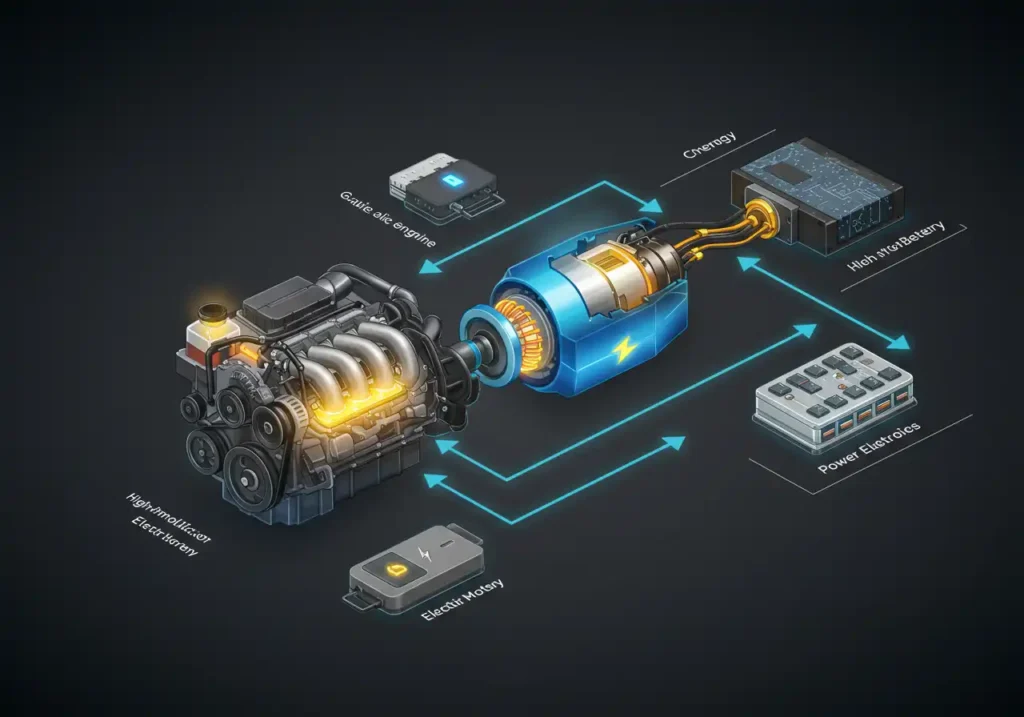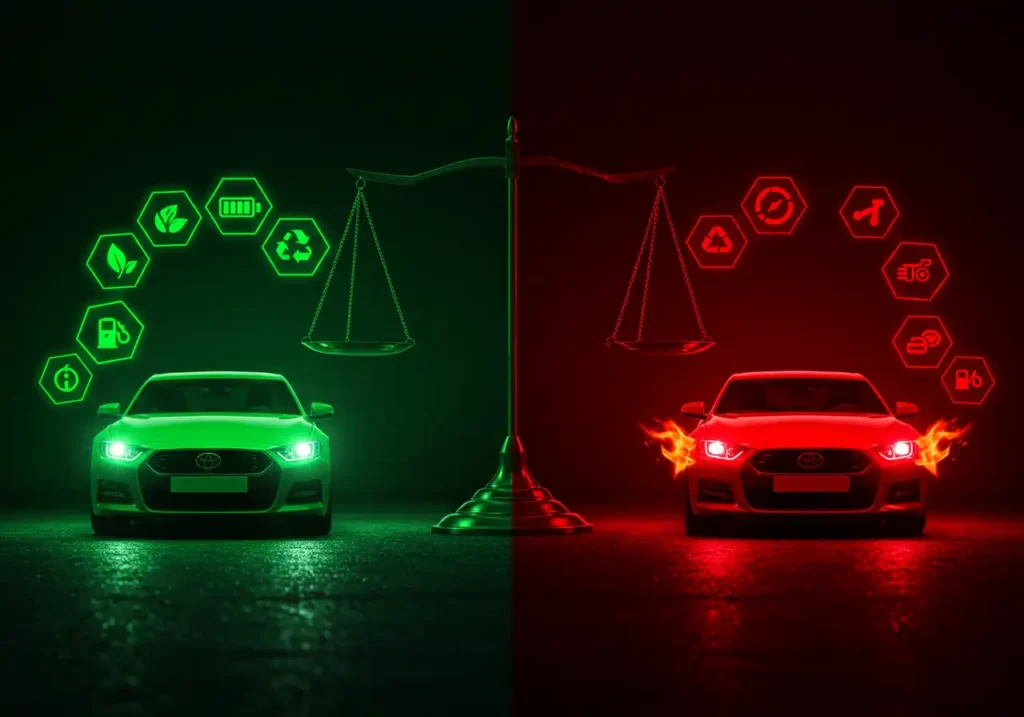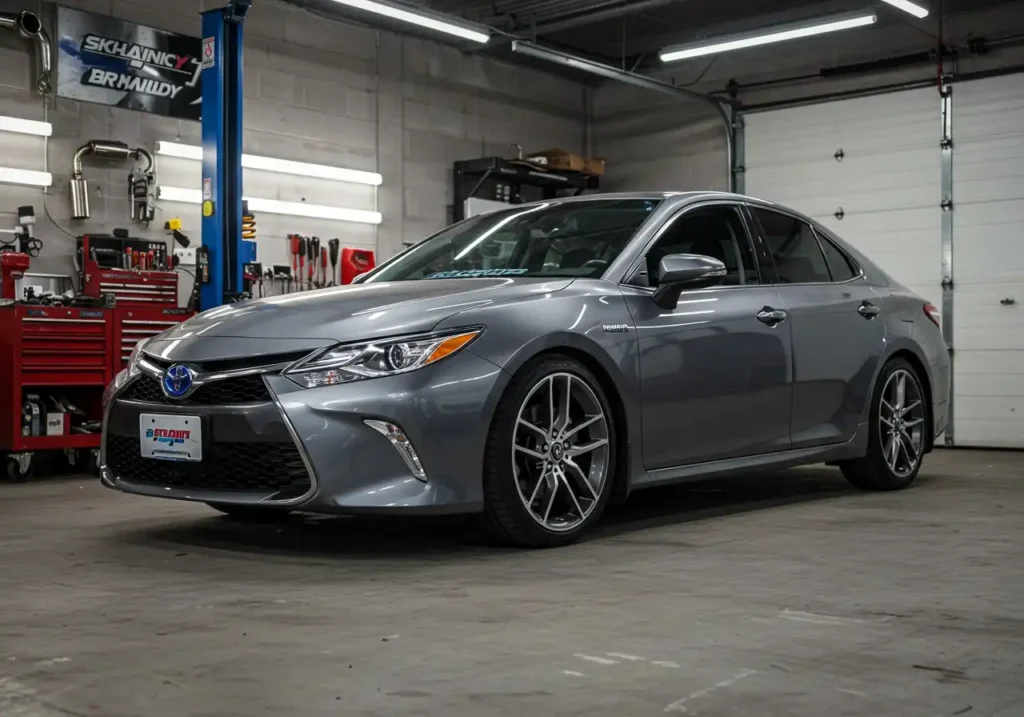Hybrid Performance: How to Tune Hybrids Without Compromising Efficiency
Hybrid cars have become a staple on American roads, offering drivers the best of both worlds—impressive fuel economy and lower emissions without fully committing to electric vehicles. But as hybrid technology becomes more common, enthusiasts and everyday drivers alike are asking the same question: is it possible to tune a hybrid for better performance without losing efficiency?
The short answer is yes. However, tuning a hybrid requires a different approach compared to traditional internal combustion engine (ICE) or even fully electric vehicles. Let’s dive into the fundamentals, tuning opportunities, potential pitfalls, and the best strategies for hybrid owners who want more performance while keeping their cars efficient.
Understanding Hybrid Drivetrains
To appreciate how tuning works, you first need to understand how a hybrid operates. A hybrid vehicle typically combines:
- A gasoline engine (internal combustion engine, ICE)
- One or more electric motors
- A high-voltage battery pack
- Power electronics (inverters, controllers, software)
Unlike traditional cars, where performance upgrades focus mainly on the engine and exhaust, hybrids rely heavily on software integration. The gasoline engine and electric motor must work in harmony. A poorly tuned system can throw off this delicate balance, leading to reduced fuel economy or even mechanical issues.
Can Hybrids Really Be Tuned?
Yes, hybrids can be tuned, but the process differs from ICE cars. Instead of relying solely on hardware upgrades, hybrid tuning often emphasizes software calibration, energy management, and lightweight efficiency improvements. The goal isn’t just raw horsepower; it’s optimized performance without compromising the hybrid system’s efficiency advantages.

Popular Hybrid Performance Upgrades
When it comes to modifying hybrids, here are the most popular and effective performance upgrades:
1. ECU & Software Tuning
The ECU (engine control unit) is the brain of the car. On hybrids, it manages both the ICE and electric components. Through ECU remapping, tuners can adjust fuel maps, ignition timing, and torque delivery. Carefully tuned software can yield:
- Improved throttle response
- Better torque delivery at low speeds
- Optimized fuel-to-power balance
However, hybrid ECU tuning requires specialized knowledge and equipment, as incorrect calibration can cause the ICE and electric motor to fight each other rather than cooperate.
2. Performance Exhaust Systems
Though hybrids don’t typically focus on exhaust sound, upgrading to a high-flow system can reduce backpressure and free up extra horsepower. This is especially useful on hybrid sports sedans like the Lexus GS450h. For daily hybrids, it may provide modest gains and a sportier feel without hurting fuel economy.
3. Battery & Energy Management Upgrades
Some tuners are exploring ways to upgrade hybrid batteries or optimize how they deliver power. While replacing a battery pack is costly, improved cooling systems, energy controllers, or regenerative braking tuning can enhance both performance and efficiency.
4. Lightweight Components
Weight reduction is one of the simplest and most effective upgrades. By replacing stock wheels with lightweight alloys or using carbon fiber components, you reduce the workload on both the engine and electric motor. This improves acceleration, braking, and efficiency at the same time.
5. Suspension & Handling Upgrades
A hybrid may be efficient, but handling is just as important as speed. Performance suspension kits, upgraded sway bars, and sport tires can dramatically improve cornering without affecting fuel efficiency. In fact, better handling can sometimes improve energy recovery during braking.
 Balancing Power and Efficiency
Balancing Power and Efficiency
The biggest challenge of tuning hybrids is striking the balance between increased performance and maintaining efficiency. Every modification must consider how it affects both power sources. For example:
- A more aggressive ECU map may increase power but could drain the battery faster.
- Larger wheels may improve grip but reduce fuel economy due to added rolling resistance.
- A freer-flowing exhaust improves horsepower but could alter backpressure enough to confuse the hybrid’s regenerative cycle.
This is why hybrid tuning requires a holistic approach. The most successful upgrades are those that work with the hybrid system rather than against it.
 Real-World Examples of Hybrid Performance Tuning
Real-World Examples of Hybrid Performance Tuning
Several manufacturers have already proven that hybrids can be both efficient and powerful. Consider:
- Toyota Prius Prime (tuned): With ECU remapping and suspension tweaks, some tuners have squeezed out sharper acceleration without affecting its 50+ mpg efficiency.
- Lexus LC 500h: This luxury hybrid coupe blends V6 power with an electric boost, showing how performance and efficiency can coexist when engineered properly.
- Honda Accord Hybrid: Aftermarket suspension and wheel upgrades have made this sedan a favorite for drivers who want sportier handling without hurting efficiency.
Legal and Warranty Considerations
Before tuning your hybrid, keep in mind:
- Emissions laws: Many U.S. states, including California, have strict emissions rules. Some modifications may make your hybrid non-compliant.
- Warranty void: ECU modifications can void manufacturer warranties if not done properly.
- Battery safety: The high-voltage hybrid battery is not something to experiment with casually. Always rely on trained professionals.
 Best Practices for Hybrid Tuning
Best Practices for Hybrid Tuning
- Work with professionals: Choose a tuning shop with proven hybrid experience.
- Focus on balance: Avoid chasing horsepower at the expense of efficiency.
- Upgrade in stages: Start with suspension or lightweight components, then move to ECU or exhaust upgrades.
- Use reliable parts: Stick to reputable aftermarket brands designed for hybrid compatibility.
How AutoSport Performance Can Help
At AutoSport Performance, we specialize in helping hybrid owners unlock hidden potential without compromising efficiency. From ECU calibration to suspension upgrades, our team ensures every modification aligns with your car’s hybrid system. We focus on safety, compliance, and results you can feel every time you drive.
Conclusion
Tuning hybrids is not only possible—it’s becoming increasingly popular. With the right approach, you can enhance acceleration, handling, and overall driving excitement while still enjoying the efficiency benefits hybrids are known for. Whether you own a Prius, Accord, or performance hybrid coupe, smart upgrades can transform your driving experience.
Interested in learning more? Visit the U.S. Department of Energy’s official guide on hybrid vehicles for more insights.

 Balancing Power and Efficiency
Balancing Power and Efficiency Real-World Examples of Hybrid Performance Tuning
Real-World Examples of Hybrid Performance Tuning Best Practices for Hybrid Tuning
Best Practices for Hybrid Tuning